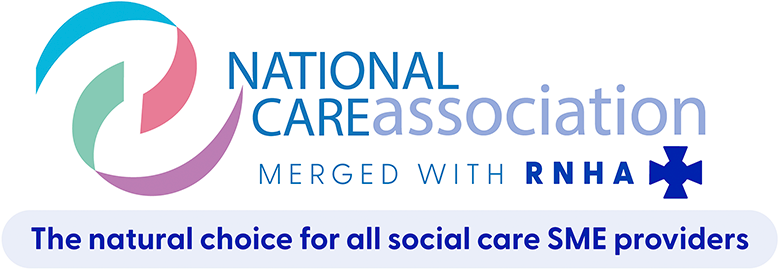Resources
Useful Links
Here you can find useful links.
Eating and Drinking Well: Supporting People Living with Dementia
Bournemouth University has developed research informed training tools to equip care staff with the skills needed to improve the delivery of nutrition and hydration for people living with dementia. These consist of a freely available workbook ‘Eating and Drinking Well: Supporting People Living with Dementia’ linked with a training film and leaflet.
Preventative Assessment Framework - I AM SMART
Small changes in a person’s manner and well-being can often be the first signs of a range of illnesses. Spotting these changes early and addressing them quickly is an essential goal for care providers.
The I AM SMART assessment tool has been developed by Insequa as a carer’s aid. Using the tool, you and your staff can:
- help avoid hospitalisation
- prevent increases in the amount of additional care and support required
- provide a big picture record of a person, even when care is delivered by multiple carers
How does it work?
I AM SMART is a mnemonic to help Care Staff spot important changes in the condition of Service Users, thereby helping you provide preventative and safe care and support. The assessment makes it easier to record issues that require observation and offers a go-to framework for easy reference.
Individual
Attitude
Motivation
Speech
Mobility
Appetite
Responsiveness
Temperature
You can download I AM SMART free – just fill in the form to access a PDF with more information and the framework. You can save this to use, print out or share with staff.
Airedale Social Movement - Community Engagement Toolkit for Care Homes
Alzheimer’s Society has been running the Airedale Social Movement Programme in Airedale, Wharfedale, Craven and Leeds since August 2016. This programme is funded by NHS England as part of their New Models of Care; Health of a Social Movement Programme until May 2018. The programme aims to bring local communities into the care home, and put the care home at the heart of the community.
Through our work on the programme, we have set up lots of initiatives in care homes. Different community groups including schools, bowling clubs & arts students have linked up with 8 care homes and are regularly running activities with the care home residents to improve their quality of life, reduce their isolation and ensure they feel part of both the care home, and the wider community.
Toolkit: One of our objectives of the programme is to spread the programme so that others can replicate the work that has been undertaken locally, and this week we have launched resources to support this including a How To Guide for Care Home staff.
Transition to Care Home Nursing Resource
The Transition to Care Home Nursing Resource was launched on Monday 29th January 2018.
The new resource, written by Queen’s Nurse Sharon Aldridge-Bent with input from an external review group of nurses and professionals who work in or have responsibilities for residents in the care home setting, is structured into ten chapters. There are specific chapters on subjects such as the fundamentals of nursing care, safe working and regulation, adults at risk, dementia care, building relationships with family, and career development.
The resource is intended for registered nurses who may have overall responsibility for nursing within the care home environment, as well as educators, students, and unregistered carers who work in this setting. As with its other Transition resources, the QNI recommends that the Transition to Care Home Nursing is used with the support of an experienced mentor.
You can read a full press release about the resource here.
Nursing and Midwifery Council (NMC) to amend English language requirements for applicants trained outside the UK
We have now published the outcome of our consultation alongside the changes to our English language policy and guidance and you can find these at the following link:https://www.nmc.org.uk/news/news-and-updates/nmc-to-amend-english-language-requirements-for-applicants-trained-outside-the-uk/ These will increase the options available to nurses and midwives to demonstrate their English language capability.
The changes to our English language requirements include:
- Accepting a wider number of tests: Currently we only accept the International English Language Testing System (IELTS) test for nurses and midwives from outside the UK to demonstrate their language competence. Our new policy will allow applicants to sit other appropriate tests that meet our criteria. The first of these to be approved is the Occupational English Test (OET).
- Allowing nurses and midwives trained outside the EU/EEA to provide evidence of their English language capability by providing evidence that they have:
- undertaken a pre-registration nursing or midwifery qualification taught and examined in English.
- registered and practised for a minimum of one year in a country where English is the first and native language, and a successful pass in an English language test was required for registration.
These changes will bring the options available for those trained outside the EU/EEA more closely in line with those from the EU/EEA.
This is the first stage of our stock take of English language requirements and we will closely monitor the impact of the changes. Next steps include evaluating other types of evidence, developing additional support for applicants, and exploring the writing element of IELTS.
New delirium quick guide
This new NICE/SCIE quick guide will help care home managers to recognise the symptoms of delirium and to understand what they can do to prevent it. It includes sections on risk factors for delirium; recognising delirium; preventing delirium and sharing information with the person and their family
The guide is available online and in a PDF version that can be printed and used in training.
Quick guides, developed jointly by NICE and SCIE, are based on NICE guidelines and quality standards. They are four pages long and use illustrations and concise text to explain key points on social care topics.
New guides on business and human rights
The Equality and Human Rights Commission has launched two new guides to help UK companies understand how to meet their corporate responsibility to respect human rights and to manage human rights complaints effectively.
- The seven-step guide for managers sets out steps managers should follow to ensure their company: - embeds its human rights policy commitment in its business, culture and practices - identifies and addresses its salient, or most severe, human rights risks - engages with stakeholders to inform their company’s approach to addressing human rights risks and communicate its activities - provides an effective remedy for human rights harms.
- Handling and resolving human rights complaints about your business shows how companies can: - identify and address human rights concerns before they escalate or lead to otherwise preventable harm - improve compliance with industry standards and statutory codes on handling complaints and grievances - monitor complaints, identify any patterns and assess how well its complaints process is working
- These guides complement the successful five-step guide for company boards. All the guides draw on the experience of UK businesses who are embedding human rights at board and operational levels.
Information from CQC
A statement from CQC’s Information Access Team on requests to access inspection notes. (Action Jan 17/09)
A statement on the work that CQC is doing to improve consistency in the checking of registered services’ regulated activities. (Action Jan 17/08)
Information on how providers can update their contact details to ensure that they continue to receive communications from CQC should these change. (Action Dec 16/10)
Consumer Council For Water - Advice on Water Competition
The Consumer Council for Water represents the interests of water customers in England and Wales. They are raising awareness of the opening of the water retail market in April 2017 and how it will affect your our members. Please find here further information about the Consumer Council for Water.
Workplace Pension Guidance
You may need to provide a pension for your personal assistant.
The law on workplace pensions has changed. Everyone who employs at least one person - including people who employ workers for their own care and support - has to put certain people into a workplace pension scheme and put money into it.
If you employ someone to care for you who is over the age of 22 and you pay them over £192 a week or £833 a month (these amounts are reviewed every year), you will need to provide them with a pension and contribute to it - this is called automatic enrolment.
It’s called automatic because it’s automatic for the people you employ, who don’t have to do anything to be put into the scheme. However, as an employer, it’s not automatic for you. There are certain things you have to do to make sure you meet the legal requirements, and if you do not comply with all your duties this may result in fines and/or prosecution.
Q&A for people who employ workers for their care and support
The essential guide to automatic enrolment for people who employ workers for their own care and support will help you work out what you need to do and when you need to do it.
You can nominate someone as a point of contact to receive communications about automatic enrollment from The Pensions Regulator. This could be you, or someone who normally helps you with your other tax and payroll duties and you can do this online here automation.thepensionsregulator.gov.uk/Nomination. You may also be able to get support from your local authority.
Make sure you allow enough time.












